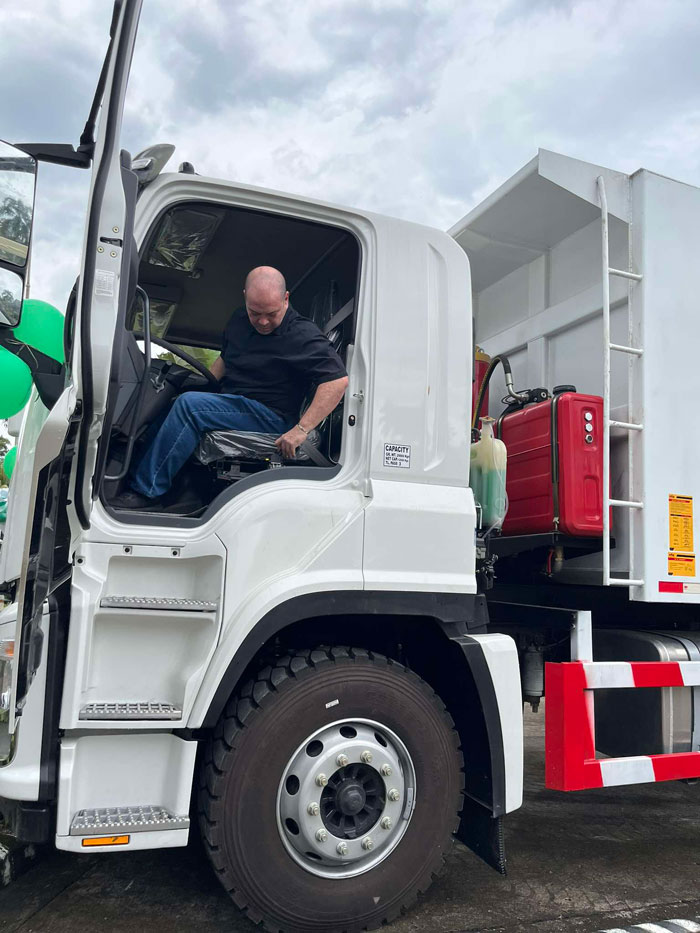Once a sugar planter himself, Pablo Luis Azcona set aside his privileged status to champion the rights of small-scale farmers and contract workers in the sugar industry.
Now leading the Sugar Regulatory Administration (SRA), Azcona introduced key reforms to make the agency more responsive to the needs of laborers and industry stakeholders.
Under his leadership, the SRA-La Granja Agricultural Research and Extension Center (SRA-LGAREC) has expanded its role in advancing sugarcane research, equipping farmers with high-yielding varieties, pest control innovations, and sustainable farming technologies.
His tenure marks a shift from traditional planter-driven priorities to a more inclusive approach that empowers the industry’s backbone—the “sakadas” and smallholder farmers.
The facility
A crucial pillar of the sugarcane sector, SRA-LGAREC operates under the Department of Agriculture (DA), driving agricultural research not only on Negros Island but across the Philippines.

The center spans 90 hectares, with 76 hectares dedicated to field experiments and the propagation of high-yielding sugarcane varieties, while the remaining 14 hectares house research facilities and office buildings.
“SRA-LGAREC is a critical component of the sugarcane industry, providing cutting-edge research and technological advancements that directly benefit farmers and stakeholders,” Azcona said.
The SRA, under the LGAREC, has recently distributed over P100 million worth of farm equipment, farm implements, and farming materials to farmer beneficiaries under the Block Farming Scheme.
On February 22, 2025, SRA officially handed over 10 units of heavy-duty dump trucks to the Mill District Development Council (MDDC) in the Visayas worth P70 million; P27.4 million of farm implements, majority are for block farm recipients; and another P3.6 million to the 5th District’s The United Block Farm Agrarian Reform Beneficiaries Small Planters Organization (5D TUBO).
“This is something that we’ve been really pushing for since I started 2 years ago. While we don’t have new equipment here in the facility, we deem that the equipment most needed by farmers should be prioritized first,” Azcona said.
Research, services
LGAREC offers various services, including high-yielding sugarcane propagation, soil and juice analysis, Trichogramma strips production, genome projects, and technology transfer.

It also holds Sugarcane Farm Management Seminars and provides on-the-job training for agriculture students. The center has three divisions: Agricultural Research Division (ARD), Agricultural Support Services Division (ASSD), and Extension Services Division (ESD) – Visayas, which include specialized laboratories such as the Soils Laboratory and Micro-Propagation Laboratory.
“Our research initiatives are designed to ensure sustainability and productivity in the sugarcane industry. By leveraging science and technology, we aim to equip farmers with the best tools for success,” Azcona emphasized.
Sugarcane productivity
The Agricultural Research Division drives studies to enhance sugarcane yield and sustainability. From 2020 to 2024, the Soils Laboratory analyzed 5,176 sugarcane stalk samples and 6,621 soil samples, with a new P8.5 million spectrometer set to increase efficiency fivefold.
The Variety Improvement and Pest Management (VIPM) section develops high-yielding, pest-resistant varieties while overseeing the Micro-Propagation, BMO, and Trichoderma Laboratories. To date, the Micro-Propagation Lab has distributed over 9.4 million plantlets, and the BMO Lab has produced 18,000+ gallons of nitrogen-fixing fertilizers.
The Trichoderma Lab, still in trials, has released 1,374 liters of bio-organizers, while the PTCM Unit refines cost-effective farming techniques. Meanwhile, the Biotechnology Section enhances disease resistance and drought tolerance in sugarcane.
Agricultural support
SRA-LGAREC plays a key role in the distribution of sugarcane planting materials.
In 2024, the Farm Services Unit recorded a 322 percent increase in high-yielding variety (HYV) releases, generating P3.27 million in income. The most in-demand variety, Phil 2006-2289, accounted for 70.82 percent of the total distribution.

Operating in Regions 6, 7, and 8, the Extension Services Division (ESD) – implements key programs under the Sugar Industry Development Act (SIDA), including block farming, socialized credit, human resource development, research and extension, and infrastructure projects.
Since 2016, 167 active block farms covering 5,423.60 hectares have been established, benefiting 4,565 smallholder farmers. Another 13 block farms are set to launch in 2025. The Block Farming Program has so far received P698.1 million in funding to support mechanization, infrastructure, and farmer training.
Azcona noted that a total of P3.09 billion has been allocated for farm-to-mill roads, with 174.48 kilometers completed and 13.90 kilometers currently under construction.
“We need to improve how the funds are being spent. We are shifting, we’re fixing the way we are spending; after all, our overhead cost is only 10 percent of the funds. The rest should go to research, equipment, and farmers’ needs,” he said.


